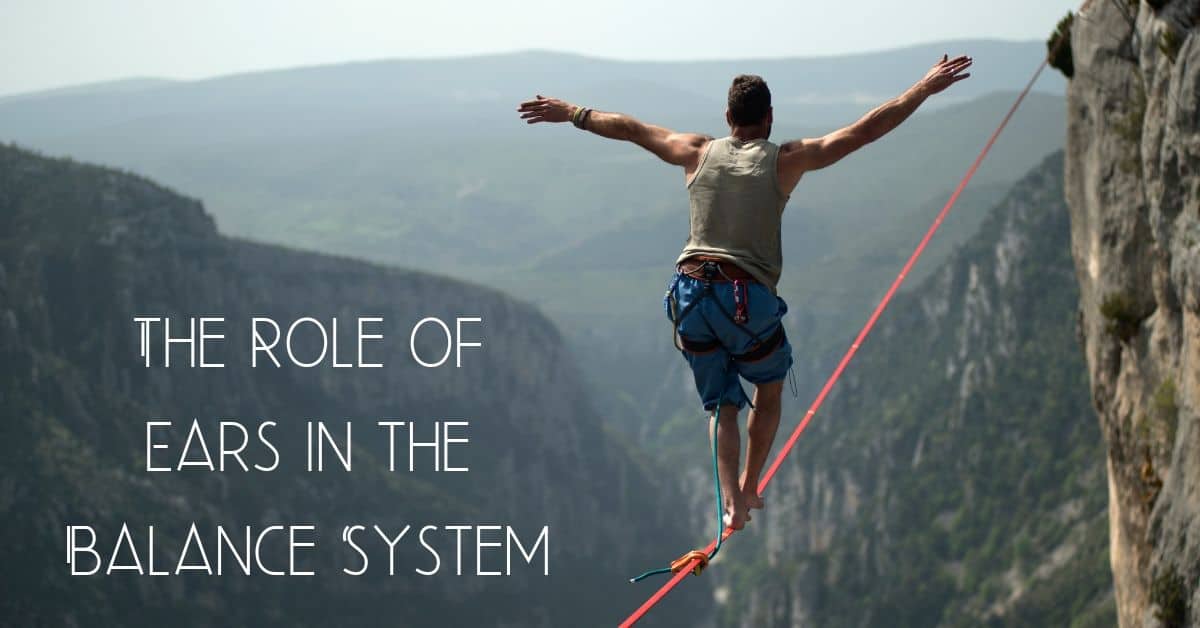
Balance disorders come in many forms, each with a debilitating effect. The ability to orient to our surroundings is crucial not only to mobilizing on two legs but also to avoiding dizziness and the feeling that the room is spinning. Others with vertigo may feel suddenly faint and disoriented, seemingly out of the blue. Like walking on a tight rope or a balance beam, we use our senses to take stock of the environment, checking in on subtle changes in distance, elevation, and pressure. With so many variables in the natural world, it is remarkable that we are able to remain erect and moving at all!
You might wonder how the brain uses the body to maintain balance while in motion or while sitting still. As the earth slowly turns and the celestial bodies move around us, subtle changes in gravity are constant, and our brain requires fine-tuned sensory input to remain aware of these changes. Three main categories of body parts are responsible for the ability to maintain balance: skin, joints, and muscles, the eyes, and the ears. Let’s take each one in turn to understand how to achieve and maintain balance in a constantly shifting world.
Your Body and Balance
The skin, joints, and muscles can be understood as a vast network of sensory information, attuning the brain to the environment. In each place where the skin touches the outside world, nerves alert the body to what occurs outside, including height, depth, temperature, pressure, and even humidity. The joints and muscles respond with more information about the way the body can move. These organs create a constant loop with the brain, always sending sensory information and receiving signals from the unconscious mind about how to respond. Recall the last time you tripped over a crack in the sidewalk. Your skin, joints, and muscles immediately alerted the brain to the difference in foot placement. In turn, the brain told those organs how to respond—where to place both of the feet in order not to fall. This entire process happens almost automatically, before the conscious mind has a chance to understand what is happening. What a remarkable process of sensation and understanding!
Vision and Balance
The eyes are the next vital organ in the process of balance. By scanning the surroundings, the eyes are able to notice changes in the horizon that may affect balance. The eyes also respond to bodily motion by changing their focus. In order to avoid blurring images or fixing the eyes on a moving object, they must receive messages from the brain about that motion. Consider the last time you were in a car looking out the window. If you were to read or look at a screen in the car, the whirring images in the peripheral view could cause dizziness or even nausea. Looking out the window and periodically fixing your eyes on signs or object can help to create balance and equilibrium.
Your Ears and Balance
Finally, the ears are an important part of the balancing process, as well. Specifically, the vestibular system is an intricate network of organs in the inner ear that uses fluid levels to tell the brain how the body is oriented. This fluid touches tiny hairs, which then transmit electrical impulses to the cerebellum. Every time you turn your head or nod up and down, the vestibular system is responsible for transmitting that information to the cerebellum in order to balance. Some traditions suggest that there is a benefit to performing an “inversion” in the body—placing the feet above the head—in order to reset the sense of balance achieved by the vestibular system in the inner ears.
Pacific Northwest Audiology
Audiologists are familiar with the crucial role the ears play in the process of balancing, and they may even be able to diagnose some acute problems. Earwax buildup and improper cleaning habits can make balancing difficult, and a hearing specialist may be able to recommend some healthy habits to maintain balance or to regain equilibrium.
If you’ve noticed issues with your hearing that may be affecting your balance, contact us at Pacific Northwest Audiology. Our team is here to help you find the best treatment for your needs.
